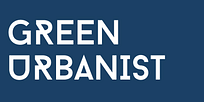Mohit and Sue Yen are architects and members of Decolonise Architecture, a solution-based group driven to tackle institutional racism and bias within architectural education and practice. In this episode we discuss:
- How architectural education and practice can be 'colonial' in its approach, and the problems with this.
- Expanding architectural education and practice to embrace other cultures and worldviews.
- How the architecture profession can be made more accessible to all.
Learn more about Decolonise Architecture: https://www.decolonisearchitecture.com/
Thanks for listening!
Join the Green Urbanist Weekly newsletter: Substack
Support the Podcast by Donation


